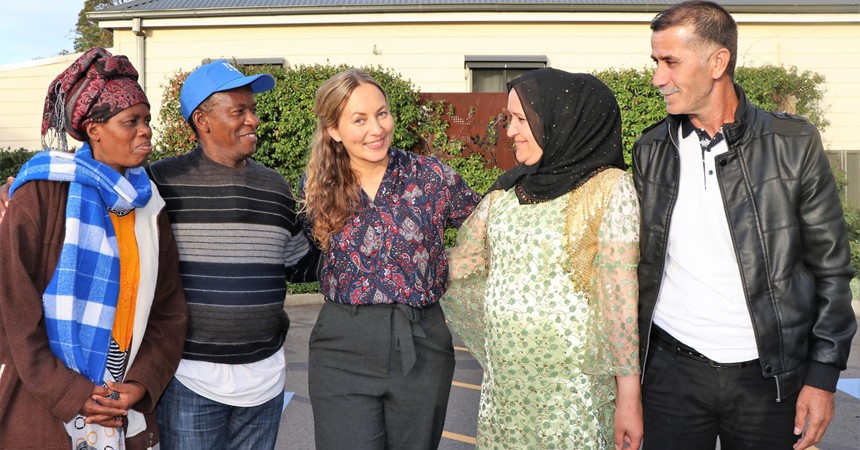When Mirja Colding-Moran says “jambo”, it comes with a Swedish lilt, and a touch of Aussie twang. Mirja is a multicultural family support worker at CatholicCare and in regular contact with the Diocese’s Development and Relief Agency’s (DARA) Refugee Hub. She grew up in Sweden, and after completing school undertook a Diploma of International Relations and Africa Studies.
“As part of my diploma I spent five months in eastern Africa carrying out field work and study,” Mirja said. “I was living with host families.” It was invaluable for her future work in refugee support, not the least because she learnt a smattering of Swahili.
Upon completing her diploma, Mirja emigrated from Sweden and has lived in Australia for the past 18 years. She completed a Bachelor of Teaching/Social Science at the University of Newcastle and one of her major subjects was geography, especially development geography and dealing with the background issues and processes relating to refugees.
After completing her degree she worked as a high school teacher until starting a family, and co-managed a hospitality business with her husband that often employed young indigenous workers and some refugees.
“When my son was born I started volunteering at Penola House, the former refugee support centre in Hamilton,” she said. The catalyst was definitely the fieldwork in Africa. Her role now with CatholicCare working with refugees and assisting families to independence and complete participation in society has been a natural progression to a perfect fit.
“I am very passionate about social justice in general, and about supporting refugees in particular,” she said. “I have a good understanding of the people we’re working with and refugee processes. The culture is very different and it’s very daunting for them, because the process is so completely different. Bureaucracy and paperwork is something they are not at all familiar with. Education levels are not always high and there is the difficulty of learning English, often from scratch.”
There are other deep-seated problems affecting a successful transition. Mirja recently completed a Service for the Treatment and Rehabilitation of Torture and Trauma Survivors (STARTTS) course in Sydney.
“A lot of refugees in Newcastle at the moment have experienced trauma,” she said. “You can almost assume that every family granted refugee status will have gone through some form of trauma. As a result, they have complex needs. The course took us through the psychology of it and how the brain works and how to minimise triggers.”
The difficult journey for refugees to eventual freedom in Australia has often involved waiting in limbo in camps, in some cases for decades, and complete separation from family.
“Some have really severe trauma from having been exposed to war and everything that means,” Mirja said. “They’ve seen family members killed or experience violence. That can be really limiting when you then have to deal with day-to-day basics like applying at Centrelink. The STARTTS course was specific for trauma sufferers and refugees, and there are little things to learn about how to communicate. Many of them have been interrogated. You have to ease into conversations rather than bombard with questions.”
Mirja finds beauty in the diversity of cultures and languages. Many of the refugees being supported in Newcastle are from Africa and most of the Congolese speak Swahili. That crash course during her diploma has proved invaluable. “Just using a few basic phrases with them, they really seem to light up. It’s really useful. It builds rapport and trust.”
For those of us for whom English is our first language, we think nothing of our fortune, even if the traditional ballad suggests Spanish is the loving tongue. But for some in our community, a phrase in Swahili can transform their day, and maybe their life.






















































































